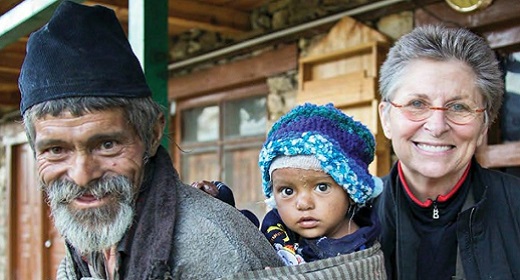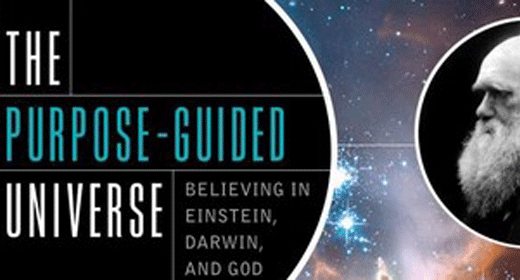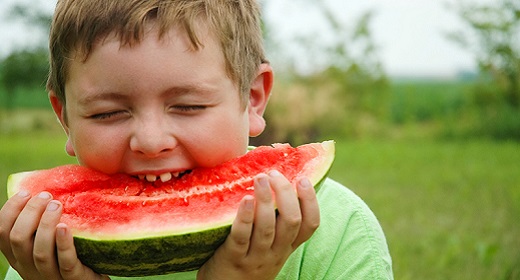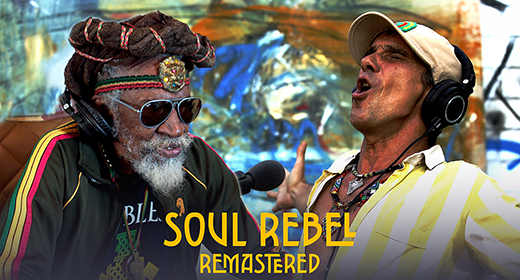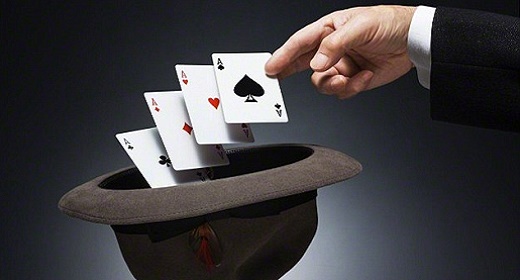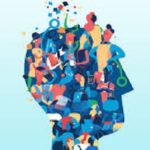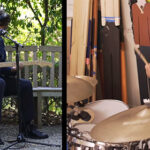Donna Quesada: I guess I have two questions. Why isn’t this stuff taught in our curriculum? Why is it so antiquated?
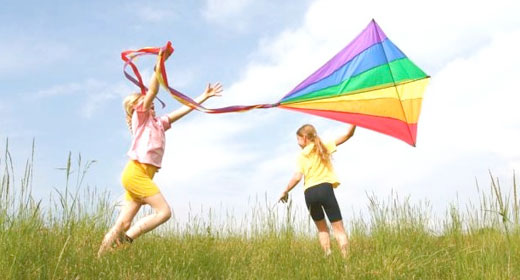
And then, number two, I would really like to talk more about language. I think that it is overlooked how important it is.
Caroline Myss: Yeah, 90 percent of what needs to be taught, is not taught, including, civics…including, teaching kids what their civil rights are. Basic civics. What our basic rights as citizens are. So, they have taken from us our curriculum, morality. They don’t teach anything about what their consciousness is about. When was the last time you saw the word “conscious” in a curriculum?
DONNA: You don’t see it.
CAROLINE: So, what does that tell you? You want to know why we have nothing but liars in Washington? And a president that lies for a living? And they don’t even have the wherewithal to say, “this person has no business representing The United States of America.”
DONNA: Seems like schools are afraid that things like morals are too wrapped up in religion and there is some fear there.
CAROLINE: And now ask me if we are awake? That, right there, is your proof.
DONNA: So, what will it take to break through that?
CAROLINE: There’s no throwing recycling in my face, when this is happening. Because that is ground zero for me.
DONNA: Point taken. But, to be fair…for twenty years, I’ve taught animal rights issues at a junior college and I’m like you…I could never see myself teaching kids. So, I get them when they are a little bit older. And in these twenty years, truthfully, Caroline, I’ve seen things change. When I first started, nobody heard of a thing like animal welfare. Or, even the option of going vegetarian. It was considered strange or hippie-like. And now, everybody has a vegetarian sister or a mother or a best friend. There are vegetarian restaurants on every corner. And it’s not that you have to be a vegetarian. I’ve just seen how the consciousness has moved a little bit in that direction. We are starting to see the interconnectedness of life. And seeing other creatures in a different light than before. And it tells me, maybe we are waking up a little bit.
CAROLINE: In very convenient ways. In very comfortable, convenient ways.
DONNA: So, when it comes right down to it…
CAROLINE: The way we eat. Do you see a rise in honesty?
DONNA: Well.
CAROLINE: Do you?
DONNA: No.
CAROLINE: There. So, there you go. In integrity? No. Do you see the laws change on behalf of humanitarian rights? No.
DONNA: So, what will it take to break through the fears that stop us, at the level of curriculum, including things like that?
CAROLINE: That’s when you bang into the school and you say, “I want this back on the curriculum. I want classes on moral consciousness back on the curriculum. Ethics. Where is Plato? I want something back that has to do with moral reasoning. The humanities. And by the way, put civics back. I want consciousness back.” It’s like the habitus maximus…we are missing the maximum habits of the heart, that are learned early in life. The maximus habits of the heart that need to be taught to the children early through ritual. Through repetition. Through witness. You don’t teach someone at age seventeen to be honest. They are, by that time, or they are not. And they have learned it, not by words, but by what they have witnessed, by what they’ve experienced and what they were taught, early on. By the time they are seventeen, they are out the door. They know at that age whether keeping something that is not theirs is okay. Maybe they wouldn’t take a car, but maybe a wallet. And I see stories in the news where a kid that returns a wallet gets a reward. When, if fact, it should have gone unnoticed. It should just be the thing that they do.
DONNA: So, this brings me back to what I was saying a minute ago…the language…
CAROLINE: Yes.
DONNA: The importance of language. And it reminded me of something else you said about this notion of being entitled because I think it goes hand in hand. This sense of being entitled to a reward, for instance. And I also see it at the junior college level. This idea that we are entitled to things that they don’t deserve. This is the biggest toxicity in our culture. This idea of being entitled or being deserving. Could you speak more about that and how this language has poisoned us?
CAROLINE: It’s language…the idea that you are special…that you are special just because you are born. And that being special…I know I was born for something special. If I had a nickel for every time someone has said that to me, I would be retired. I know I was born for something special. I’ll say, “what is that, exactly?” But, they sit there in wonderment. That the specialness is going to be delivered to their door and they always think it’s a glamorous career. And it’s always tied consciously or unconsciously to something to do with protecting them from being humiliated. That’s what’s special. So, I won’t be humiliated again and I will go back to the people who humiliated me when I was a child and say, “see, I really am special!”
So, it’s got this little twinge of bitterness to it. But when you believe that you are special or tell your kids that they were born for something special, you have this as a life path and what happens is extraordinary. Other than ordinary. And what you do is live in this bubble where ordinary things are not supposed to happen to me. I’m not supposed to get sick; you are, but I’m not. And you’ll be one of those people that says, “I can’t believe this happened to me.” But the other thing that is really treacherous is that you will give yourself permission to live outside the law because extraordinary means “I don’t follow laws. I don’t have to because I am extraordinary. Laws are for ordinary people. And I’m extraordinary. So, I am going to get privilege. Laws are for ordinary…extraordinary means, I’m privileged. I get special favors…I don’t have to wait as long in lines. I get to cut to the front. I get this. I get that.” And that is how people measure their self-worth, by being exceptions to the rules, rather than having to follow them. And as a result, we have a lawless society. That’s how society becomes lawless.
DONNA: And then when things don’t go that way, we fall into victim consciousness.
CAROLINE: Totally. Total victim. Or litigious. We go one way or the other. We become both victim and litigious. Sue everybody because it didn’t work out. I was entitled to this outcome. Nobody is entitled to an outcome. Outcomes are crap shoots. You never know how anything is going to turn out. From marriage to a dinner. You have no idea, I’ve blown a lot of dinners that I could have sworn were going to turn out great.
DONNA: Is that what really makes us sick, Caroline. Falling into victim consciousness? And how do we turn the key to let that baggage go?
CAROLINE: This is what Buddha and Jesus taught…again and again and again. It’s an illusion that you can control the outcome. It’s an illusion. That’s what you have to give up; this idea that believing you are entitled can determine and create outcomes. That the more money you have, the more arrogant you are… special you think you are…somehow casts a spell on life and commands life…that we can command nature. That we can control weather. That we are entitled enough that we can control seeds, like Monsanto. We can do all of this because that is who we think we are…and that we are entitled to do this. We are not entitled to do anything. And when you finally get that in your head and you really think, I really don’t have control of anything, except myself and my responses to myself. I need to follow my guidance and trust that if I follow my guidance, always, in how I speak to people, what I do with my work…If I’m integral, If I do a good job and my intention is not to harm anybody…It doesn’t mean harm will not come to you. That’s not how life is. You can’t believe in that child’s God: if I’m a good person than nothing bad will happen to me. And at the same time, have a belief in Karma and in past lives and everything else because that is a child’s belief. If you believe in that whole universe, that there is reincarnation and Karma and all of that, then stuff is going to filter in. And maybe a death from who knows where, is going to come in and it doesn’t matter how good you are. Who knows how the system plays out or sometimes something from a life yet to be lived comes in. We just have to trust that we go about our life being the best person that we are. And you don’t tell yourself that you are entitled…that you’ll have a life free of accidents…free of any bad things because it’s not…you can’t live that way. That’s not the way the laws work.
DONNA: Is all sickness emotional?
CAROLINE: No. You can have bad DNA. And sometimes an illness is part of a person’s journey. Part of what their whole contract is. I’m not emotional about that. You’re asking me, “is it because they are just toxic?” No. Not at all. Helen Keller wasn’t toxic. That was what she needed to have, so I don’t buy any of that nonsense.
DONNA: What about the idea that we are supposed to go through it to learn a lesson from it. Is that just a story, too?
CAROLINE: Yeah. We go through everything to learn a lesson. What are we not learning from? Health? We go through health to learn lessons. Our every day is learning. And if it was true that negativity would cause us illness, everybody in congress would be vomiting every day. But they are not. And Donald Trump would be on a respirator.
DONNA: So, if someone were to come to you and I’m sure they have…if they were to say to you, “This happened to me. How can I heal myself?” What is the most important thing I can do right now, to change the situation that I have found myself in?” Whether it is emotional or physical…
CAROLINE: Well, it’s a good closing question. So, we’ll close on that. You know, everybody can always do something every day. Everything. Everybody can do something every day to help their wellbeing along. Every single day. What I would say to them is “take a look at your life and assess it. What do you know that you haven’t done?” Or, are you not doing as well as you can? What are you holding on to that is just dead weight, that you have to get rid of? What is it that you are postponing? What attitudes need to be changed that are not serving you?” These are the things that you can change right away. And everyone can do something, beginning with that.
DONNA: For example, forgiveness?
CAROLINE: Forgiveness. Or, even to agree to stop using negative words in their head. To stop self-pity. It’s lethal. And expectation and entitlements. Clean them out. I’ll end with this story. I was walking on the Camino last week, in Spain. And I had this experience where I had been walking and it had been raining and raining and raining and I was walking up this long path…crawling up this hill. I finally stopped. I needed a break. And just as I stopped, it also stopped raining. I put my head up and all that time, I was watching the ground because I was on a rocky path and because of the rain, you could slip on the rocks and I had to watch where I was going. I didn’t see anything that I was walking parallel to. So, I didn’t notice that I had begun a steep climb next to a valley…that below, there was this stunning, huge, Spanish valley. So, when I stopped I was almost to the peak and I pushed back my hood. It had been pouring rain. And now, the sun was beginning to peek out. And so, everything was shimmering because of the sunlight on the water…the dew drops. And I look and I see this panoramic view.
The Spanish valley was stunning. And I see all these little hamlets and some snow on top of the mountains. And I thought, my god is this beautiful! And I just stood there and smelled the air, that wonderful way that air smells with water in it. I just filled up my lungs and stood there and thought, this is so beautiful…I’ve never seen this before and I want to remember every single glimmer. I want to make this great, big, huge memory for the rest of my life. I want to remember this moment, standing on this mountain, standing here right now, this day. Then it occurred to me…that I couldn’t remember most of my life. Faced with desire to make a great, big, huge memory. I was confronted with the reality that I had very little memory of all the ordinary days of my life.
DONNA: Like dreams…
CAROLINE: And it took my breath away. And then I stood there and then the second tsunami hit. And I thought, I could die in this moment. Right now, in this moment. So much life is happening on the planet in this moment. People are being born, people are dying. People are making agreements. People are getting married. People are getting divorced. Souls are coming in. Souls are leaving. Businesses are being born. All these things are happening right now, in this moment, that I am standing here. Friends are meeting. Friends are saying goodbye. Strangers are sitting next to each other. New conversations are starting. And I’m imagining all the things taking place in the moment that could be my last moment. And I am looking at this valley and thinking, this could be the last thing I see. And I thought…and I hardly remember this life that I have lived.I remember so much about it, of course, but if you said to me, where were you on October 4th, 1967? I have no idea. In high school, somewhere. The truth is, I thought, what a humble experience. And who would even glance backwards, once I leave the planet and life would go on and that would be that. And then tsunami three. I didn’t remember hardly any of the things that I was once fretting about. Or, what made me so angry, or whatever, and that delighted me. And so, when you say, “what can people do?”Humble up! Get over yourself. There is nothing about your life that is that big a deal. Nothing. Absolutely nothing. You are not that important to anybody, at all. There is nothing that we are doing that someone else cannot do. Humble up! You want a practice? That’s it.
DONNA: Let that be the take away. That beautiful story.
CAROLINE: You got it.
DONNA: Thank you, Caroline. Thank you, very, very much.
CAROLINE: You got it. My pleasure.
Read and watch Part I Here: The Real Heart of a Spiritual Journey Is the Pursuit of ‘What Is Truth?’
Read and watch Part II Here: What Is In One Is In The Whole,





